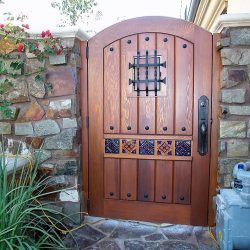Forgiveness
Toxic People are Poisoning Your Life
That's Why We Call Them Toxic
Posted January 2, 2018
Toxic people are toxic because relating to them only brings you down, only makes you dislike, even hate yourself, only defines you in THEIR terms. They are toxic because they are poisoning your life. Toxic people may be hurt people who need healing—but this is very commonly how they trap their prey—by convincing their prey that it is they who need healing and help, not you, and you must, therefore, stay and help or heal.
So, you managed to survive the winter holidays, somehow. You had an encounter with that mother, father, aunt, uncle, brother or sister who is toxic. How did it make you feel? Commonly, the answer to that question is one of three or four options:
1. I feel like I got them back; I zinged back with everyone of their zingers.
2. I feel betrayed, belittled and abused.
3. I feel lost. I’m just shattered…again.
4. I laid down some appropriate boundaries and feel that they were not able to get to me this time.
It’s obvious that the answer that is the healthiest for all parties, is number 4. But we often have to walk through numbers 1, 2 and 3 many, many times before we can manage to get to number 4. Our experiences with our attempts to get them back, with betrayal, belittling and abuse, and our feelings of being lost or shattered, are all meant to inevitably lead us to the place where we can begin to build healthy and appropriate boundaries.
So how do we do that? Well, first we have to know that a boundary is not a wall. We often build walls where we only intended to build a boundary. But don’t get me wrong—sometimes a wall is all that will do. A wall is a permanent fixture. It is meant to stay. It is meant to forbid entry. It is meant to create a distance between parties. And sometimes such a permanent fixture is needed to protect us from harm, whether that harm is emotional, physical or sexual. We simply must remove some people from our lives. You and/or you and your therapist can decide together who these people are.
But other times, we don’t need a wall, we just need a fence. A fence with

a gate—and a gatekeeper—you. So, a fence defines property lines. It says where you stop and I begin. It says, you may enter when I say you may enter—but not until. It says, this aspect of your behavior may enter, but that aspect may not. It says how long you may stay. So, the most important aspect of this kind of boundary is the property line. I must, absolutely must come to know where I stop and you begin before I can put up an appropriate boundary. How can I come to know that?
I must come to know myself—the inner workings of my mind, my heart and my choices. That doesn’t mean that I know myself perfectly. But it does mean that I know the difference between what is my thought, and what is yours. What is my emotion and what is yours. What is my choice and what is yours. Why is this so important when it comes to toxic people? Because toxic people will use our ignorance about these things to manipulate, fool and abuse us.
If you don’t know what your emotion is, I might be able to trick you into thinking that my emotion is really your emotion. For example, you try hard always to be nice and kind to others, so you don’t like to get angry. Therefore, you often don’t even know when you are angry. And therefore, when I’m really angry, I might be able to yell at you to stop being so angry at me, and because you fear being angry, you might come to believe that you’ve said or done something that has shown anger at me. You’ll then feel very sorry for being angry at me and offer apology. What just happened in that exchange is toxic. Why? Because I was able to give you responsibility for my emotion. I made you believe you were angry, because that was easier than admitting to myself that I’m angry at you. It also allows me to manipulate you, because once I’ve convinced you that you are guilty of being angry, you are much more pliable.
On the other hand, if you had known yourself well enough to know when you are angry and when you are not, you would not have accepted responsibility for my emotion that way. And you would have been able to hand that responsibility right back to me: “No, I’m not angry, but you do appear to be very angry, and if you are willing to tell me, I’m willing to hear exactly why.” Or, "Yes, I am angry and here's why." Often at this point the toxic person will deny any anger and insist that you are the problem here. At that point, a person with healthy boundaries might say something like, “If you are ever willing to really work this out, I’m happy to do that with you, but I’m not willing to stay for a discussion that is only going to blame me for your feelings.”
The most toxic thing about a toxic person is his or her unwillingness to take responsibility for his/her own actions, thoughts and emotions. What this generally means is that they are going to project or blame the other person for these things. Therefore, if we are going to spend any time at all with toxic people, we must come to know ourselves, come to walk our own property lines, come to know where to put the boundaries. If we are not going to learn healthy boundaries, we are probably going to need a lot of walls.


